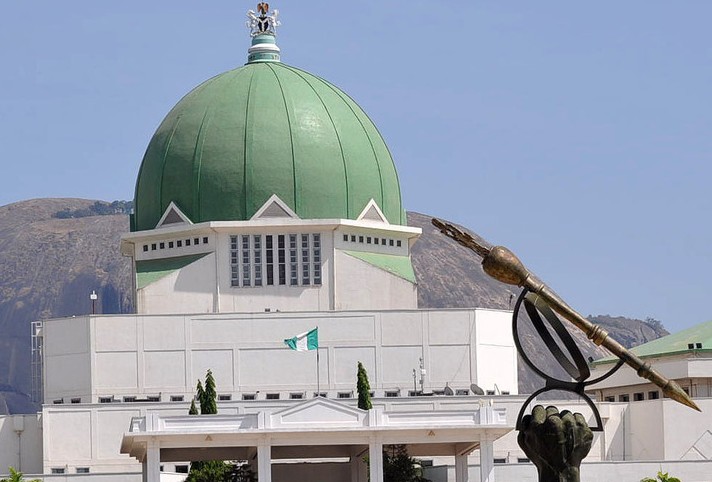
By Gbemiga Bamidele
World press freedom day is a day to celebrate the fundamental principles of press freedom, to evaluate press freedom around the world, to defend the media from attacks on their independence and to pay tribute to journalists, who have lost their lives in the exercise of their profession.
The proclamation of the day in 1993 by in UN General Assembly marked the beginning of substantial progress towards enabling a free press and freedom of expression around the world.
The theme for this year is “Shaping a future of rights- Freedom of expression as a driver for all other human rights”.
This year's special 30th anniversary is therefore a call to recenter press freedom, as well as independent, pluralistic and diverse media, as necessary key to the enjoyment of all other human rights.
Four fundamental freedoms are outlined in the preamble of the 1948 universal declaration of human rights. These are freedom of speech, freedom of belief, freedom from fear and freedom from want. It is not incidental that freedom of speech comes first, this fundamental freedom is the one that enables all others. In the universal declaration, freedom of opinion and expression has been further detailed in article 19 as the right to seek, receive and impart information and ideas through any media regardless of frontiers.
While all human rights are universal, interdependent, indivisible and interrelated, freedom of expression's function as an enabler for other human rights has been further explored by the relevant United Nations treaty bodies and committees in charge of international instruments, who published their interpretation of provisions in the form of general comments or recommendation.
The complimentary of freedom of expression with other human rights has similarly been acknowledged in the 1993 Vienna declaration and programme of action on human rights, whose 30th anniversary is commemorated this year, and which underscores linkages between freedom of expression, the rule of law, the administration of justice, freedom of thoughts and religion, and participation in decision making processes. The adoption of this declaration and programme of action also led to new measures to protect the rights of women, children and indigenous peoples, and permitted the establishment of the office of the high commissioner for human rights.
The right to freedom of expression and it's corollary, the right to access information, show us to seek, receive and impart information, ideas, concepts and beliefs across borders and cultures and in the exercise, the media and journalist play an essential role. They help verify and disseminate facts, they create spaces for ideas to be debated and for the voiceless to be heard, and they render complex matters intelligible for public at large. Through their various platforms, media workers can reach wide audiences, including the most isolated and marginalized communities who might otherwise have limited access or might be inundated with disinformation consequently, can obtain information they need to exercise rights such as access to health, education and justice, and to fight against economic inequalities.
Journalists, through their investigation and fact-checking inform us about current issues and how these can impact our rights. Investigative journalism around the world uncovers criminal activities and wrongdoings that affects the human rights of citizens.
The journalistic work had a track record in ensuring for instance the right to health or to life and has exposed violations of right through misuse of public funds, human trafficking, illegal surveillance act, matters of discrimination and many more. Issues illuminated through research by journalist have led to meaningful policy changes for the benefit of society, hence, investing in independent public interest journalism is an investment in resilient and informed societies.However, freedom of expression and media as highly significant as they are, also requires responsibility from journalists. And that is why at all times, journalists must comport themselves within the ambit of media ethics. This is by promoting for the public benefit high ethical standards in journalism, based on principles of truth and accuracy, independence, fairness and impartiality, humanity and accountability. This can be attained by consistent provision of education and training and retraining of journalists.
Journalists face ethical dilemmas every day, under the pressure from owners, competitor, advertisers, and the public. They need a process to resolve these dilemmas, so that journalism is ethical. They need a way of thinking about ethical issues that help them make good decisions, even on deadline. This way of thinking is grounded in the principles journalists rely on and of course, journalists should seek the truth and treat their sources with respect.
Journalists, at all times must preserve and promote the trust of the people and maintain their own credibility and not betray the faith and confidence of the people.As we celebrate the 30th anniversary of world press freedom day, and as we venture into the last decade for the fulfillment of the Sustainable Development Goals Agenda, 2030, freedom of expression, the free flow of information and press freedom are therefore precondition for the realization of the sustainable development goals agenda, 2030, as without them, we cannot eliminate poverty and hunger, preserve biodiversity and promote sustainable development, or build transparent institutions. They are indispensable in the fights for the rights of minorities and marginalized people, to combat all kinds of discrimination, to build diverse and inclusive civic spaces, and to uphold resilient democracies.
Gbemiga Bamidele is the convener, Society for Journalism Enhancement Initiatives (S4JEI)



